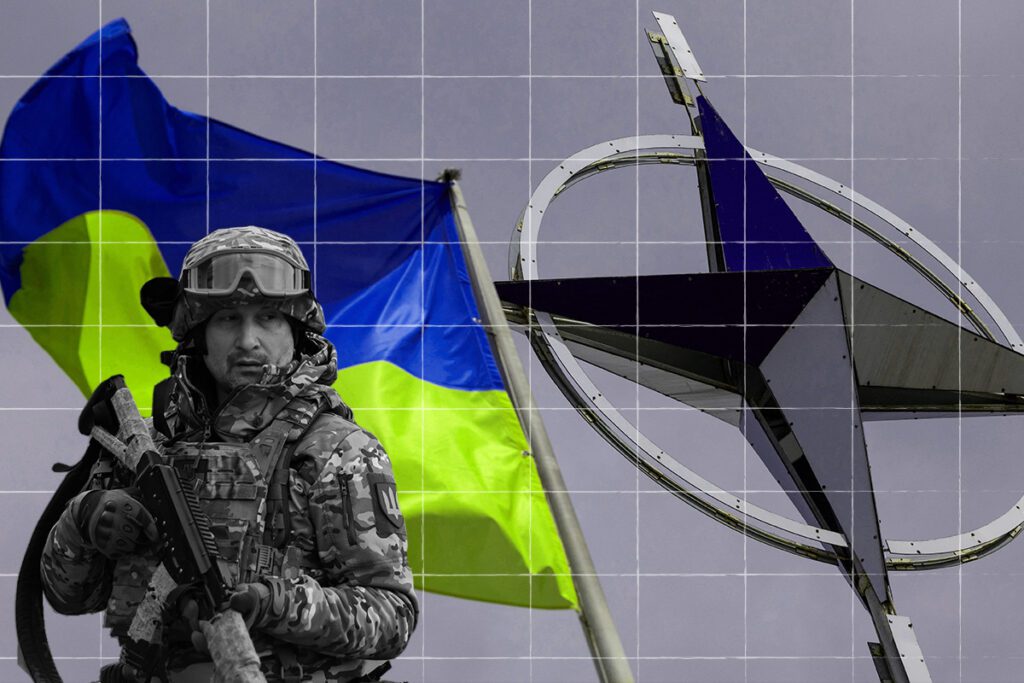The content discusses the evolution of NATO from a Cold War alliance to a global security provider. Established in 1949 in response to the Soviet threat during the Cold War, NATO has transitioned from deterring aggression to addressing new security challenges such as terrorism and regional conflicts. The alliance’s first out-of-area operation in Kosovo in 1999 marked a shift towards global security engagement. Today, NATO is involved in peacekeeping, counterterrorism, and maritime security operations worldwide. By building partnerships with international organizations and promoting stability in conflict-affected regions, NATO continues to play a crucial role in ensuring collective defense and security in the 21st century.
The Evolution of NATO: From Cold War Alliance to Global Security Provider
The North Atlantic Treaty Organization (NATO) was established in 1949 as a collective defense alliance among North American and European countries in response to the growing threat posed by the Soviet Union during the Cold War. Since its inception, NATO has evolved from its original purpose of protecting its member states from external aggression to becoming a global security provider, engaging in a wide range of operations and missions beyond its traditional area of responsibility.
Cold War Era
During the Cold War, NATO’s primary focus was on deterring Soviet aggression and defending its member states against the threat of a Soviet invasion. The alliance deployed troops and conducted military exercises along the Iron Curtain, the border between Western Europe and the Warsaw Pact countries of Eastern Europe, in order to demonstrate its solidarity and readiness to respond to any potential attack.
In addition to its military role, NATO also served as a political forum for coordinating the policies and strategies of its member states in response to the evolving security environment of the Cold War. The alliance provided a platform for dialogue and consultation among its members, helping to promote unity and solidarity in the face of common challenges.
Post-Cold War Transition
With the collapse of the Soviet Union in 1991, the strategic landscape of Europe and the world changed dramatically. NATO was faced with the challenge of adapting to this new reality and defining its role in the post-Cold War era. The alliance began to shift its focus from the defense of its member states against external aggression to addressing new security threats, such as terrorism, proliferation of weapons of mass destruction, and regional conflicts.
In 1999, NATO conducted its first out-of-area operation in Kosovo, demonstrating its willingness to intervene militarily in conflicts beyond its traditional area of responsibility. The alliance also began to forge partnerships with countries outside Europe, such as Australia, Japan, and South Korea, in order to enhance its capacity to address global security challenges.
Global Security Provider
Today, NATO is actively engaged in a wide range of missions and operations around the world, demonstrating its commitment to promoting peace and security beyond its traditional boundaries. The alliance has conducted peacekeeping operations in the Balkans, counterterrorism missions in Afghanistan, and maritime security patrols in the Mediterranean Sea and Indian Ocean.
In addition to its military activities, NATO also plays a critical role in building partnerships with other international organizations, such as the United Nations and the European Union, as well as with non-governmental organizations and civil society groups. The alliance works to promote stability and security in regions affected by conflict and instability, and to support the development of democratic institutions and the rule of law.
Conclusion
The evolution of NATO from a Cold War alliance to a global security provider is a testament to the alliance’s ability to adapt to changing security challenges and to contribute to peace and security on a global scale. As the world continues to face new and emerging security threats, NATO remains a vital institution for ensuring the collective defense and security of its member states, as well as for promoting stability and security in regions affected by conflict and instability.
Through its military capabilities, political cohesion, and partnerships with other international organizations, NATO is well positioned to continue playing a leading role in addressing the complex security challenges of the 21st century.
